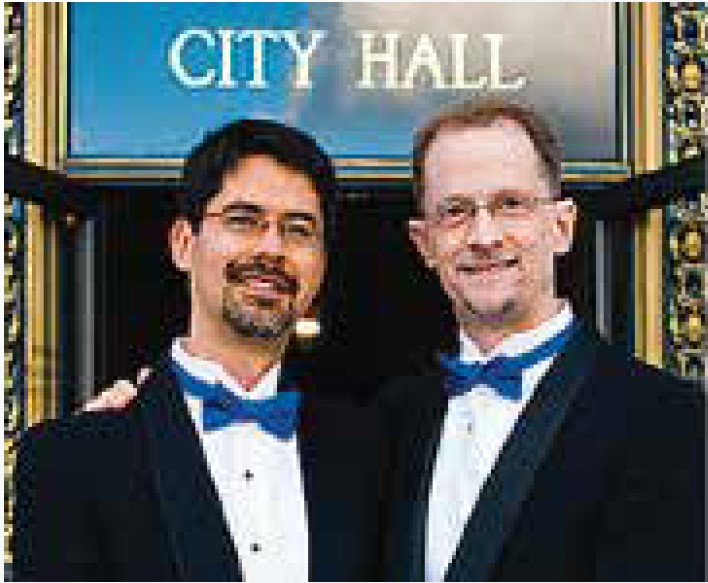
By Stuart Gaffney and John Lewis–
Last week witnessed a milestone in Asian queer history and a tremendous step forward for the global LGBTIQ movement. The King of Thailand, Maha Vajiralongkorn, signed the landmark Thai marriage equality bill marking a breakthrough for LGBTIQ rights in Thailand and in Asia, the world’s most populous continent, which is home to nearly 5 billion people, constituting 62% of the world’s population. Thailand will become the third Asian country with the freedom to marry (following Taiwan and Nepal) and the first to achieve marriage equality exclusively through the legislative process backed by overwhelming political and public support.
The Thai Senate voted in favor of the freedom to marry earlier this year by a sweeping 130 to 4 vote, a few months after the marriage equality bill sailed through the Thai House of Representatives by a 400 to 10 margin. A government survey, conducted a year ago, showed a staggering 96.6% of the Thai public favored marriage equality.
Last week, Thai Prime Minister Paetongtarn Shinawatra, in office for just over a month, posted on X: “Congratulations on everyone’s love. #LoveWins.” She further expressed her gratitude for “support from all sectors.”
Thai LGBTIQ activists cheered the accomplishment and also embraced the broader implications of the victory beyond marriage equality. Kwankaow Koosakulnirund described to the BBC how the new law “means we are fully accepted and can live our lives without conditions or compromises,” with queer Thais “embracing the sense of pride that this law brings.”
The new marriage equality law replaces gendered terms such as “husband,” “wife,” “man,” and “woman” with gender-neutral terminology, and also provides same-sex couples adoption and inheritance rights. Marriages will begin on January 22, 2025, 120 days from the day the King signed the bill last week. Planning has already begun for a mass wedding that day of over 1,000 LGBTIQ couples, many of whom have been waiting countless years for the opportunity to marry.
One might wonder how and why Thailand achieved this remarkable victory with such extraordinary legislative and popular support. First and foremost, we salute the tireless Thai queer activists for all their hard work that made it all possible.
But we see the roots of last week’s victory stretching back far longer. Thai culture has long recognized gender diversity, including a third gender called kathoey, a somewhat fluid term that includes some transwomen, effeminate gay men, intersex, and other nonbinary people.
Evidence suggests that the traditional Thai understanding of gender beyond a rigid Western binary could be grounded in ancient Buddhist texts dating back millennia, which include a very similar term. Over 90% of Thai people identify as Buddhist today, and the religion has had considerable influence on the development of Thai culture. Although some Thai Buddhists hold very conservative social views, core Buddhist texts in addition to recognizing a third gender contain no moral condemnation of homosexuality, unlike that widely interpreted to exist in Abrahamic religious texts such as the Bible and Qur’an.
When Thailand became a constitutional monarchy in the 1930s, it rapidly adopted Victorian era notions of the gender binary in an attempt to appear as a supposedly “civilized” nation. But in contrast to the Lavender Scare sweeping across the U.S. government in the 1950s, Thailand in 1956 repealed its law criminalizing same-sex intimacy. And Thailand was never colonized by a Western nation, such as Great Britain with its notorious colonial sodomy laws, whose legacy continues in many of the countries that still criminalize same-sex intimacy today.
The Thai victory will also reverberate across other parts of Asia, such as neighboring Vietnam and Cambodia, as well as Japan, South Korea, and India. It will fuel momentum for those countries’ queer movements and increase pressure for those countries’ governments to act.
And significantly, Thai law permits foreigners to marry in Thailand. Thus, binational Thai couples will be able to marry and have the “same rights and privileges as any other married couple” as explained on the Siam Legal law firm’s website. Two foreigners will also be able to come to Thailand, regardless of whether their home countries permit them to marry, and be able to work, live, or retire as a married couple with full equality under the law. When it comes to multinational companies and organizations and universities attracting queer talent, marriage equality will give Thailand a competitive advantage over many other Asian countries that lag behind.
LGBTIQ Asians outside Thailand will also have another country—indeed a dream destination wedding venue—where they can get married, further increasing visibility and illuminating the need for change in their home countries, not to mention reminding their home countries of wedding business and tourist money they are missing out on because of discrimination.
Finally, attainment of marriage equality in Thailand is significant globally because Thailand is in Asia, and not the West. The vast majority of countries with marriage equality are in Western Europe and the Americas. The Thai victory provides further proof that LGBTIQ rights and dignity are not just a Western human rights issue, but a global value that transcends culture. Prime Minister Shinawatra characterized the marriage equality movement as “a joint fight for everyone.”
We encourage readers to join in that fight—and the global celebration of victories as well. One helluva party will take place in Bangkok on January 22, the first day of equality. It will be a day that we can all celebrate.
John Lewis and Stuart Gaffney, together for over three decades, were plaintiffs in the California case for equal marriage rights decided by the California Supreme Court in 2008. Their leadership in the grassroots organization Marriage Equality USA contributed in 2015 to making same-sex marriage legal nationwide.
6/26 and Beyond
Published on October 3, 2024
Recent Comments